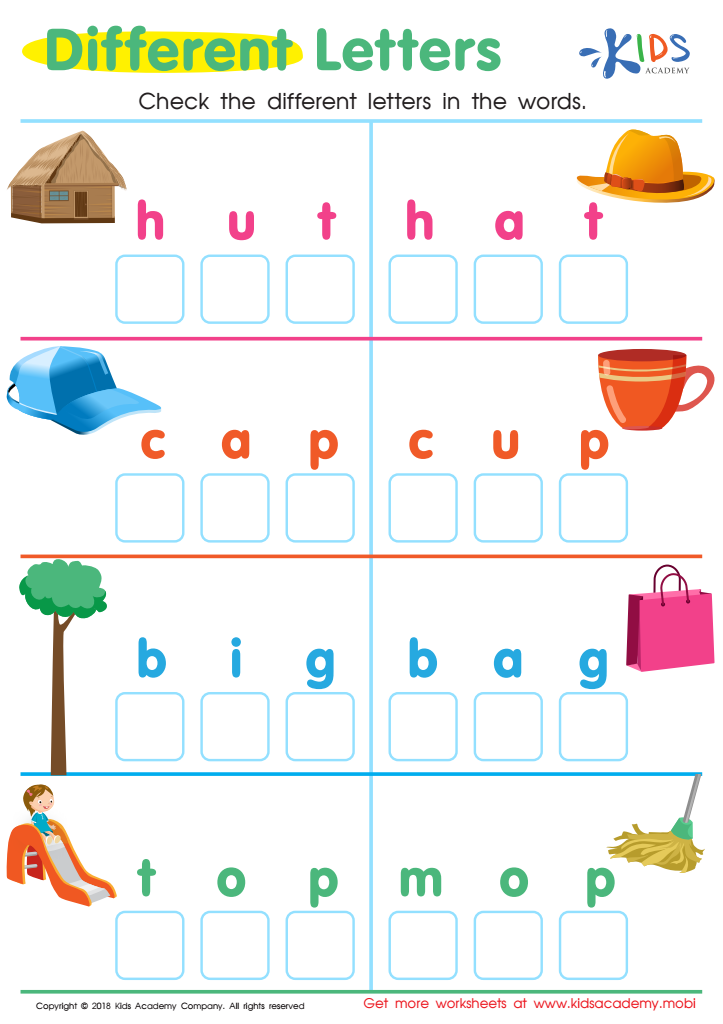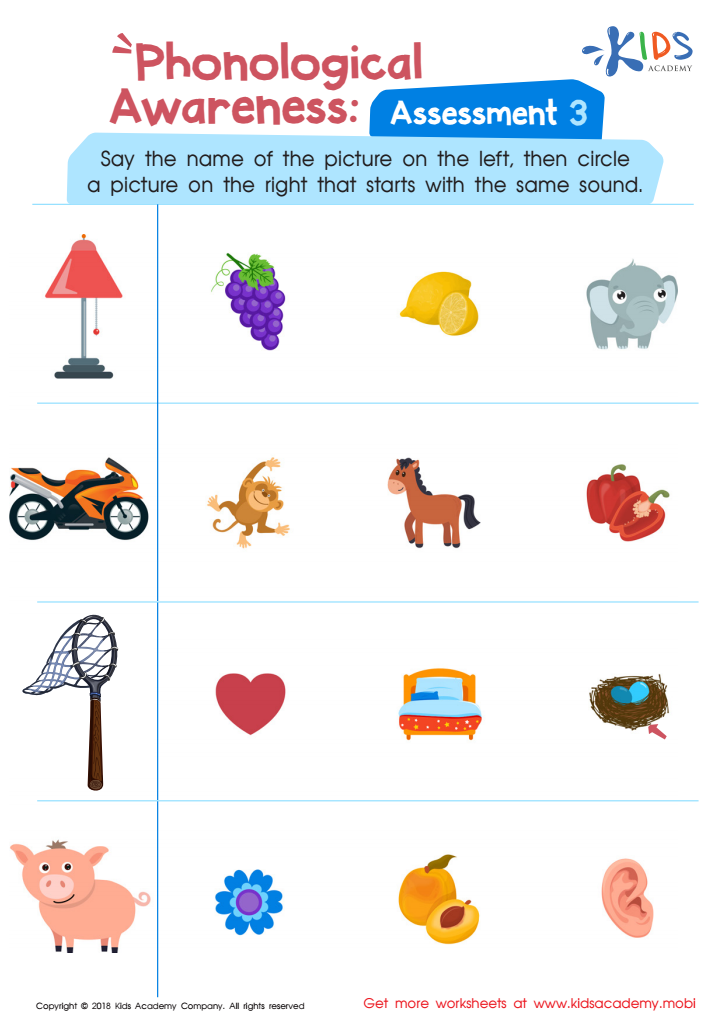Letter recognition Elementary Phonics Worksheets for Ages 3-6
5 filtered results
-
From - To
Discover our engaging Letter Recognition Elementary Phonics Worksheets, designed for children ages 3-6. Foster your child's alphabet familiarity and early reading skills with our fun, educational resources! Each worksheet features playful activities that enhance letter recognition and phonemic awareness, making learning enjoyable and effective. Our expertly crafted worksheets are perfect for preschoolers and kindergarteners, offering varied exercises that cater to different learning styles. Boost your child's confidence and set the foundation for literacy success. Access and print these fantastic tools from our expansive collection today, and watch your young learner thrive in their educational journey!


Long and Short U Worksheet


Different Letters Reading Worksheet


Phonological Awareness: Assessment 3 Worksheet


Long and Short E Worksheet


Phonological Awareness: Assessment 1 Worksheet
Parents and teachers should place great importance on letter recognition and elementary phonics for children ages 3-6, as these skills form the foundation for literacy and future academic success. During these formative years, children's brains are highly receptive to learning new concepts. Letter recognition is the ability to visually identify letters and understand that they have specific sounds associated with them. This skill is fundamental for reading and writing.
Children who can quickly and accurately recognize letters are more likely to develop strong reading skills. Early phonics, which involves understanding the relationships between letters and sounds, enables children to decode words and develop spelling abilities. This improves their reading fluency and comprehension, opening the door to a world of knowledge and enhancing their cognitive development.
Moreover, mastering these skills at an early age boosts children's confidence and enthusiasm for learning, fostering a positive attitude towards education. It also provides a crucial tailwind as they advance into more complex literacy and academic tasks. The benefits of strong letter recognition and phonics skills extend beyond the classroom, contributing to children's overall language development, communication skills, and critical thinking abilities. Providing a supportive environment at home and in school is essential to nurturing these foundational skills, setting children on a path to lifelong learning and success.
 Assign to My Students
Assign to My Students










